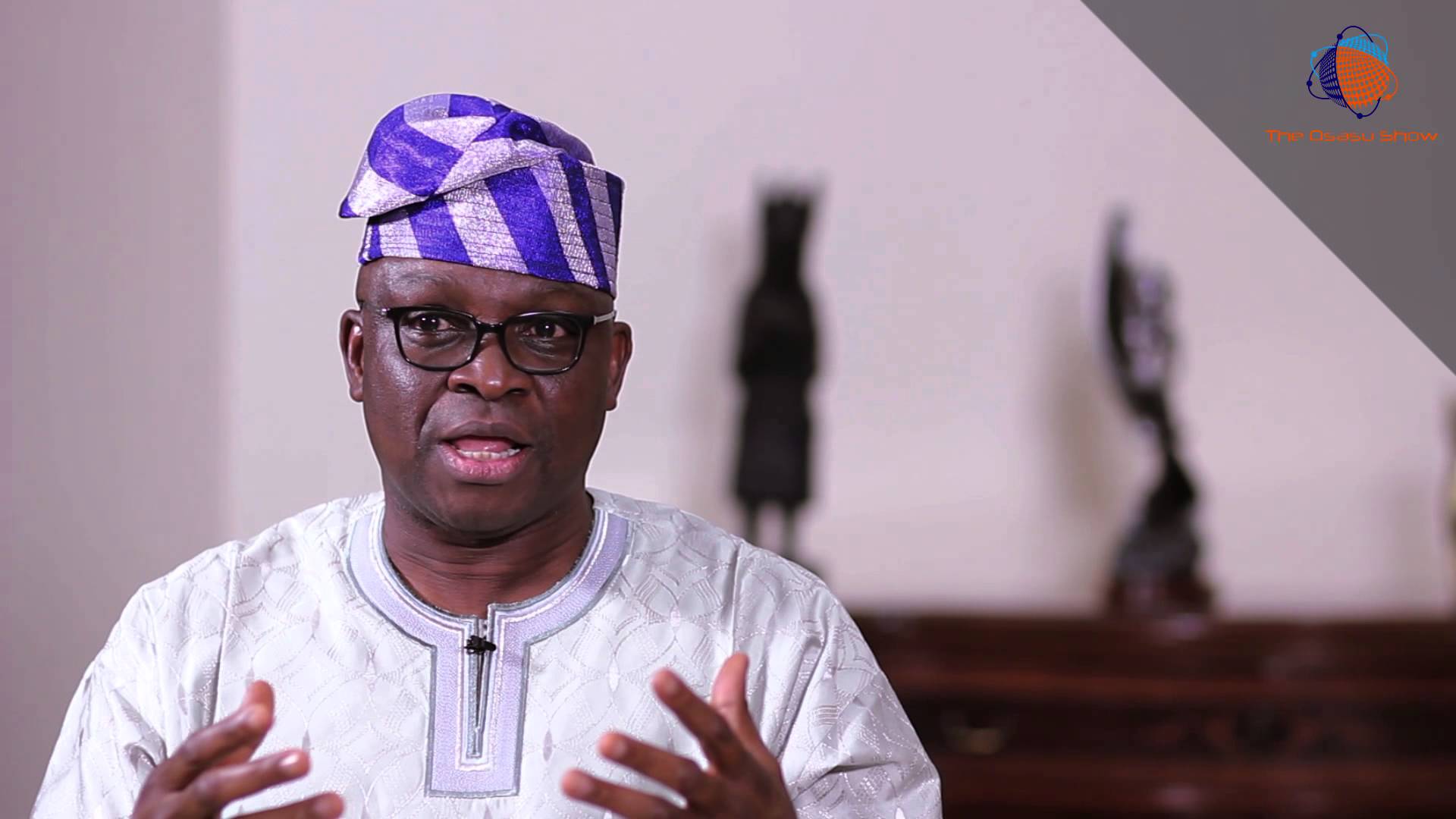- Fayose Faults Exit From Recession Claim
Ekiti State Governor, Ayodele Fayose, has faulted the claim by the National Bureau of Statistics that the country has climbed out of economic recession.
The governor said the reality on ground showed that Nigerians were suffering and dying, with foods and drugs out of their reach, adding that no statistics would make meaning to people who could not afford to eat once daily.
He stated this in a statement by his Special Assistant on Public Communications and New Media, Lere Olayinka.
“Claiming that Nigeria is out of economic recession without any corresponding effect on the living condition of the people is just like they said Boko Haram had been defeated and over 400 people were killed by the insurgents in the last five months,” Fayose said.
The governor, who also described the reason given for the cancellation of Federal Executive Council meeting that ought to have held on Wednesday, said it was funny that the same Federal Government that declared public holidays forgot that there would be a Tuesday after the public holidays and that the FEC meeting would be held on Wednesday.
“They should look for another lie next week because the reality is that President Muhammadu Buhari does not have the required mental capacity and strength to rule Nigeria, and I maintain that he should consider his health as well as the overall interests of Nigeria and resign,” he added.
On the news of Nigeria exiting recession being celebrated by the Federal Government, the governor wondered why the price of foodstuffs like rice had not reduced to N7,000 per bag that it was when Buhari took over power.
Fayose asked, “Is the dollar now N197 to $1? Is petrol now back to N87 per litre that Buhari met in May 2015? Are Nigerians now feeding comfortably, even if it is once in a day?
“Most importantly, are states now getting enough allocation from the Federation Account to be able to meet their obligations, especially payment of salaries?”
He maintained that the claim of exit from recession was nothing but another attempt by the Buhari-led All Progressives Congress to deceive Nigerians ahead of the 2019 elections.
He added, “It must be stated that Nigeria’s foreign reserves, which stood at $28.6bn by May 2015 when President Buhari took over power, declined steadily to $23.89bn by the last quarter of 2016. It was in 2016 that Nigeria slipped into recession owing to the bad economic policies and repressive actions of President Buhari.”

 Forex2 weeks ago
Forex2 weeks ago


 Naira1 week ago
Naira1 week ago
 Naira4 weeks ago
Naira4 weeks ago
 Company News4 weeks ago
Company News4 weeks ago




 Naira1 week ago
Naira1 week ago
 Billionaire Watch1 week ago
Billionaire Watch1 week ago




 Naira3 weeks ago
Naira3 weeks ago




 Naira1 week ago
Naira1 week ago





















